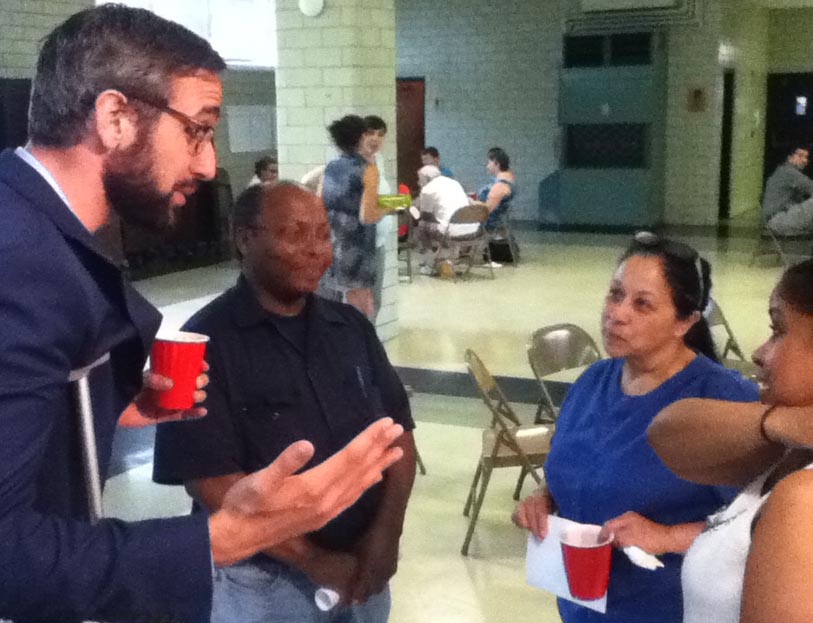Illinois' budget shortfall is due to a tax decrease that has largely benefited the wealthy, according to 39th district Rep. Will Guzzardi (D-Chicago).
Guzzardi made the claim as he addressed about 60 people at a July 18 "town hall" meeting on the Northwest Side.
When the General Assembly let the state's income tax on individuals drop from five percent to 3.75 percent on January 1, Guzzardi said, it benefited "almost exclusively . . . the very, very wealthy."
"The top one percent of earners," or about 60,000 people, said Guzzardi, "got back an average of $17,000 a year," for a total of about $1.2 billion. On the other hand, he said, "the bottom 50 percent of earners . . . got back a total of around $500 million."

Guzzardi sought to give context for the absence of a state budget for fiscal year 2015, which began on July 1. While the Democrat-controlled legislature and Republican Gov. Bruce Rauner have yet to concur on a budget, both sides agree that the state's annual expenses outstrip authorized revenues by billions of dollars.
"The total cost of that [January 1] tax break was $5 billion; the total budget deficit is $4 billion," Guzzardi said. "So . . . we're not here because of some big, inexplicable crisis. We're here for the simple reason that we just had a giant tax break for the very rich in the state. We gave 'em back a bunch of money, and now there's not enough money to fund our services."
The freshman legislator, who was elected in November of 2014, had called the public meeting so constituents could "learn about the Illinois budget crisis," according to his Web site.
Guzzardi was not optimistic about the legislature's ability to bolster state revenues through tax increases—including a progressive income tax, similar to that of the federal government.
Rauner has said he'd veto such increases without a package of reforms that he calls his "turnaround agenda." And although the legislature's Democratic supermajority could override a veto, Guzzardi said, it won't happen—because in the Illinois House "there are two or three Democrats who will never, ever vote for a tax increase."
Another speaker at the meeting noted that federal taxes for the wealthy have decreased steadily since the mid-20th century.
"In the '50s and '60s, the marginal tax rate on the highest income earners—we're talkin' billionaires back in their day—was 95 percent," said Michael Collins of The Peoples' Lobby.
Collins said that such rates were justified—because earnings of the wealthy were due partly to government-provided infrastructure, regulation, and "the hard work that everyone around [them] contributed."





